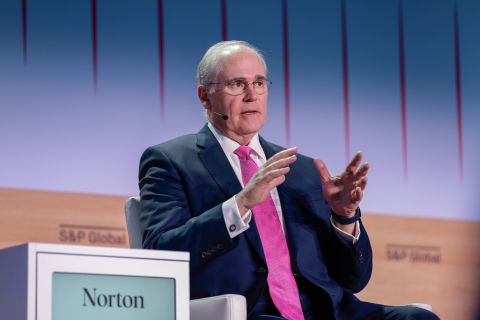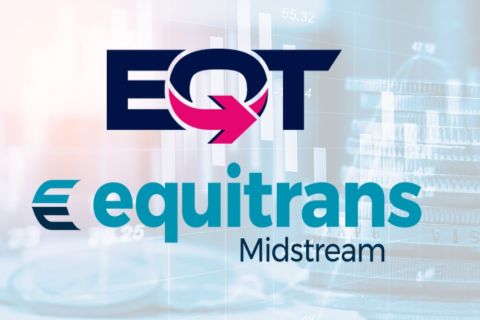It probably speaks to the nature of the types of folks drawn to the oil and gas business: the wildcatters, the risk-takers, the eternal optimists. They know the industry has its ups and downs. And one assertion that can be made for the new year is that they can count on surprises from either direction.
How do the soothsayers of the midstream expect these and other issues to be resolved? In a volatile commodities market, just about anything is possible.
“I expect to be surprised,” Ethan Bellamy, senior research analyst at Robert W. Baird in Colorado, told Midstream Business. “If you think about 2008, 2009, you knew there was chaos, but you didn’t know exactly what it would produce. We knew the tide had gone out, but we didn’t really know who was swimming without any shorts on.”
Some companies that appeared strong with solid financials went under the last time oil prices plummeted and the nation teetered on the edge of recession. SemGroup Corp., for example, had appeared bulletproof before questions sprang up about the firm’s leadership and the midstream company filed for bankruptcy.
“That only came to light because of the volatility in the commodity markets,” Bellamy said. “I think there’s a complacency about MLPs that comes from not seeing a full cycle, or maybe not having a 30-year history in all cycles, and the reality is, all of these MLPs have a number of different businesses and a number of different contract structures. Fee-for-service means one thing to one company vs. another. This is a very heterogeneous group. There are significant differences in how these businesses are modeled and run.”
The MLP asset class is still fairly new, with about half of them less than five years old.
And, he said, it’s important to draw a very clear line between upstream MLPs that are direct price-takers, and the midstream MLPs that have more margin-oriented and fee-oriented businesses, which are also hedged.
“That’s not to say midstreams are immune—we can point to Boardwalk [Pipeline Partners LP] for an example of the midstream not being immune to changes in commodity prices in the basins in which they operate and the impact that has on flows—but I think you can take the upstream MLPs and put them in a risk category that is far and away different from the midstream,” he explained.
While that comes, no doubt, as good news to midstream readers, what’s less comforting is the ambiguity that surrounds the Fed’s intentions regarding interest rates.
“I think the biggest thing that people need to [follow] is, will the Federal Reserve take the oil price decline as an additional stimulus and an outright positive that allows them to raise rates, or will they take it as a canary in a coal mine of potentially larger issues of global demand. That is the giant macro question we all need to think about,” Bellamy said.
Reports appeared in early January that the Federal Reserve is weighing whether to raise interest rates. The 10-year Treasury rate was 1.96% in early January, which Bellamy noted was “an extraordinarily low interest rate.”
“We’ve seen both very dovish and very hawkish statements from opposing members of the Fed, but certainly the MLP sector does not need the double whammy of increased interest rates, coupled with low oil prices and a reduced fundamental outlook.”
Companies weighing MLP potential are still waiting to hear from the IRS on what assets qualify for the structure. The agency suspended all private-letter rulings last spring.
“They are marching at their own pace, clearly,” Bellamy said.
While the IRS gets its bearings, companies like Antero Midstream must delay strategic moves. It’s been speculated the company would drop down its water logistics assets at Antero Resources, which had a $1 billion IPO last fall. However, the agency could decide to focus the structure more on the oilfield and less on services.
“I don’t think anybody knows, one way or another, what they’re going to decide, but it wouldn’t surprise me if they came down negatively on the issue,” Bellamy said.
Deon Daugherty can be reached at ddaugherty@hartenergy.com or 713-260-1065.
Recommended Reading
ONEOK CEO: ‘Huge Competitive Advantage’ to Upping Permian NGL Capacity
2024-03-27 - ONEOK is getting deeper into refined products and adding new crude pipelines through an $18.8 billion acquisition of Magellan Midstream. But the Tulsa company aims to capitalize on NGL output growth with expansion projects in the Permian and Rockies.
SCF Acquires Flowchem, Val-Tex and Sealweld
2024-03-04 - Flowchem, Val-Tex and Sealweld were formerly part of Entegris Inc.
Enbridge Closes First Utility Transaction with Dominion for $6.6B
2024-03-07 - Enbridge’s purchase of The East Ohio Gas Co. from Dominion is part of $14 billion in M&A the companies announced in September.
Pembina Cleared to Buy Enbridge's Pipeline, NGL JV Interests for $2.2B
2024-03-19 - Pembina Pipeline received a no-action letter from the Canadian Competition Bureau, meaning that the government will not challenge the company’s acquisition of Enbridge’s interest in a joint venture with the Alliance Pipeline and Aux Sable NGL fractionation facilities.
EQT Deal to ‘Vertically Integrate’ Equitrans Faces Steep Challenges
2024-03-11 - EQT Corp. plans to acquire Equitrans Midstream with $5.5 billion equity, but will assume debt of $7.6 billion or more in the process, while likely facing intense regulatory scrutiny.





